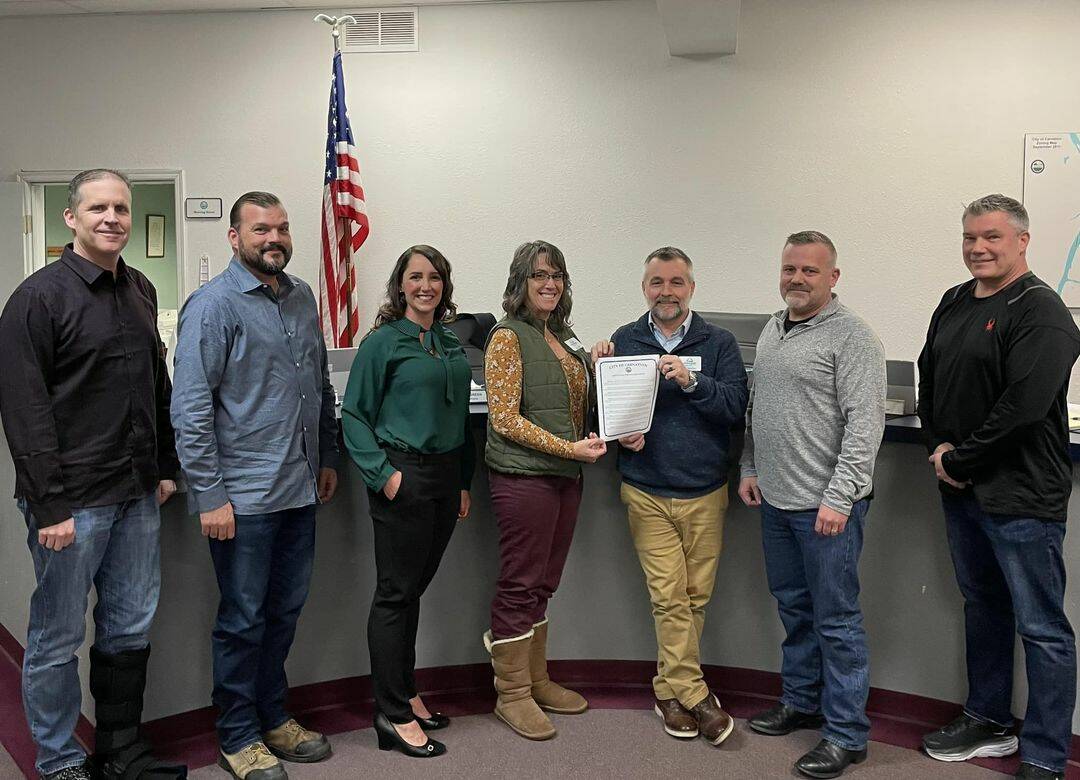Dave Spurling first learned about the Empower Youth Network’s student mentoring program while attending his church at Mount Si Lutheran.
Spurling, a retired project manager from Boeing, had two of his own children go through Snoqualmie schools. He was interested in mentoring a high-school student, hoping to help guide them on deciding what to do after high school. He was then matched with a freshman student at Two Rivers High School who had recently moved to the area.
While the pair do not share many of the same interests, they’ve developed a bond, Spurling said. Just last week, they had a memorable conversation about his new mentee’s new internship, doing bookkeeping for local business.
“We don’t connect on some things. He’s into online gaming and is up late at night talking to friends, and I’m more involved in music and church work,” Spurling said.“[But] he knows each week we can talk about things and I can give him my perspective.”
Spurling is one of several adults who participate in “Youth Success! Mentoring,” a program Run by the Empower Youth Network (EYN), a nonprofit out of Carnation.
Now in its sixth year, the program matches adult mentors with children of all ages in the Snoqualmie Valley and Riverview School Districts who are in need of a positive role model. Each adult acts as a mentor and meets with their students once a week in a one-on-one environment where they play games, talk or eat lunch together.
“They’re not teachers or a parent, but they hang out, have fun and show that they care for these students,” Heather Downing, manager of the program, told the Valley Record last year. “The idea is, the more caring adults are in a student’s life, the greater the impact is.”
Compared to their peers, students with a mentor are less likely to skip school or start using illicit drugs, and also experience fewer depressive symptoms, according to EYN. Students with mentors are also more likely to volunteer, hold leadership positions in a club or sports team, enroll in college or become mentors themselves.
“The research really shows, for all of us, that if our social and emotional needs aren’t met, we won’t do well in other areas,” Downing said.
Last year, for adhering to its best practices, EYN’s program was awarded Expert Partner Status by Mentor Washington, an organization which supports hundreds of similar programs across the state.
Yet, despite the program’s success, there is a shortage of mentors in the Snoqualmie Valley and nationwide, where one in three children are estimated to grow up without a mentor.
It’s the reason why EYN has joined forces with the Snoqualmie Tribe, Snoqualmie Valley School District, Riverview School District and cities of North Bend, Snoqualmie, Duvall and Carnation in recognizing January as National Mentoring Month.
“Our community’s youth need adults more than ever,” EYN staff wrote in a press release.
Mike Patton, a North Bend resident, who mentors an 8th-grade boy, said just being there for his mentee has been the primary objective.
“Out of the gate, my goal was really just to be a consistent adult male in his life, which is something he hasn’t had,” he said. “As long as I was able to do that, I think that was half the battle.”
Patton was first matched with his student in 2017, when he was only a third-grader, and they have met weekly over the past six years, even during the pandemic.
Despite their longtime tenure together, Patton said their relationship has involved very little conversation. The two mostly played games, he said, and his mentee even taught him to play chess.
But with a lack of dialogue, Patton acknowledged that there were sometimes challenges. He said it was often difficult to gauge whether the boy was happy with their arrangement.
“It was really tough during COVID over Zoom,” he said. “I did the best I could to come up with conversation topics for him.”
But at their more recent meeting, the pairing had their first long conversation. With the advice of program staff, Patton informed his mentee that he would be moving out of state next summer, ending their arrangement. That, he said, prompted a series of questions.
“It was the first time we sat for 30, 40 minutes and had a conversation and didn’t play any games,” Patton said. “I don’t know what that means, but that was special for me.”
Check it out:
You can learn more about being a mentor at: empoweryouthnetwork.org/youth-success-mentoring.


